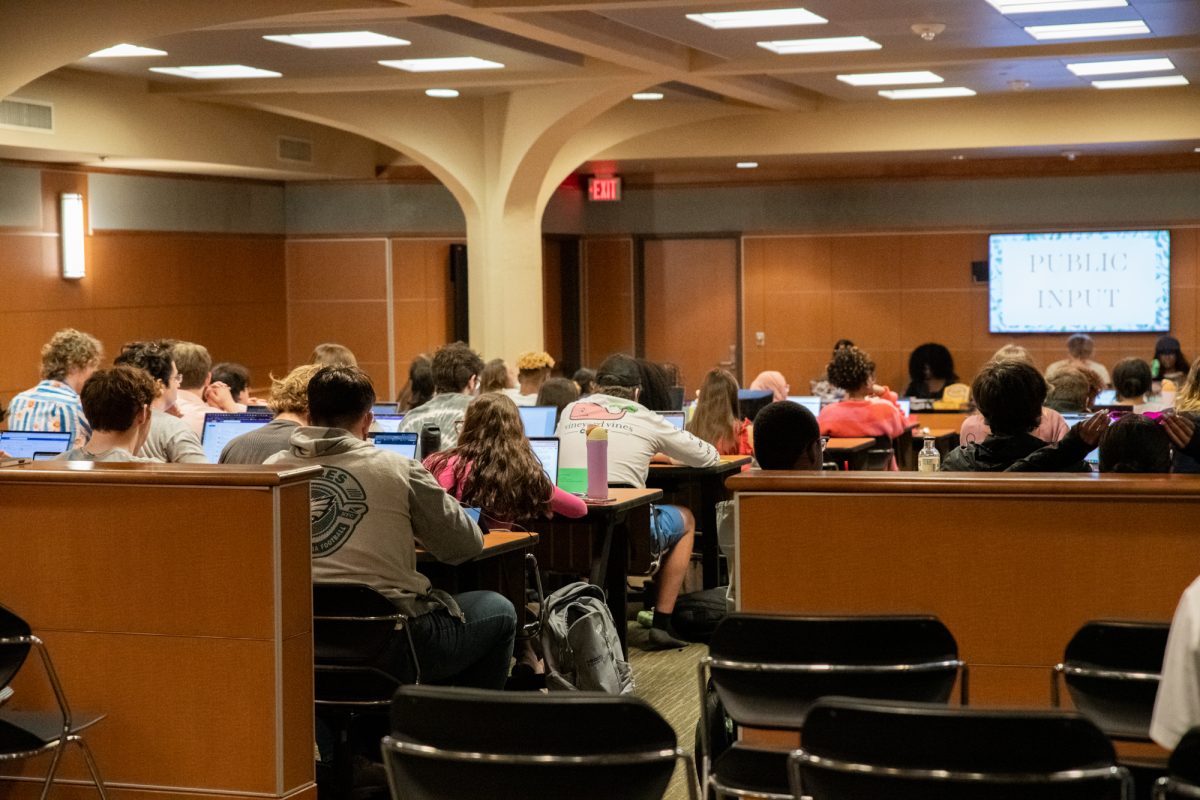Students got a historical perspective on Louisiana’s energy and environmental situation from University alumnus and Harvard Kennedy School fellow Jason Theriot, who spoke Monday to a crowd of about 100 in the Holliday Forum of the Journalism Building.
As part of a promotion for his upcoming book, “Building America’s Energy Corridor: Oil and Gas Development and Louisiana Wetlands,” Theriot recounted the history of the oil industry in the state, from the first oil men in the early 1900s to the contributions of Louisiana Sen. John Breaux near the end of the century.
As a Louisiana native, Theriot underscored the importance of the state’s rich natural resources and the effect they have had on the development of regional culture.
“My great-grandfather managed a shrimp canning factory,” Theriot said. “That allowed him to send my grandfather to college for agriculture, which in turn allowed my father and myself to attend college.”
He said he hopes to bring attention to the symbiotic relationship between the state’s livelihood and its natural resources by emphasizing how attitudes toward the environment have changed over time. He said Louisiana’s unique ecosystems have become less vital to the state’s survival, but remain its greatest symbol of identity.
“These resources are part of our heritage,” Theriot said. “People came here originally to use the natural resources, through fishing, trapping, logging and so on. They used them for subsistence. What we’re seeing now is people returning to the environment for recreation — to re-create, or reconnect, with that culture.”
According to Theriot, one result of this cultural reawakening is a newfound awareness of environmental issues, both in public policymakers and in upcoming generations. Theriot said he’s optimistic about the future because environmental awareness has already been raised.
“We’re all becoming more informed of the need for balance between the environment and the economy. There is hope,” Theriot said.
He also praised Louisiana’s 2012 Coastal Master Plan, released by the Coastal Protection and Restoration Authority.
Theriot said one of the driving forces behind this outlook shift was former Sen. John B. Breaux, who introduced pieces of legislation that allocated federal funding to the protection of coastal wetlands. After leaving office in 2005, Breaux donated his complete archives, including press releases, memos, news articles and speeches, to the University. Theriot said these archives were vital to his book research.
“The John B. Breaux Papers” are currently housed in Hill Memorial Library in the Special Collections Department. Tara Laver, interim head of Special Collections, was in charge of archiving and documenting the Breaux papers and making them available to the public.
“This work is really interesting to me because it combines historical, archival research with current issues that are important today,” Laver said.
____
Contact Gordon Brillon at [email protected]
Author’s speech blends La. environment, economy, history
January 31, 2012





